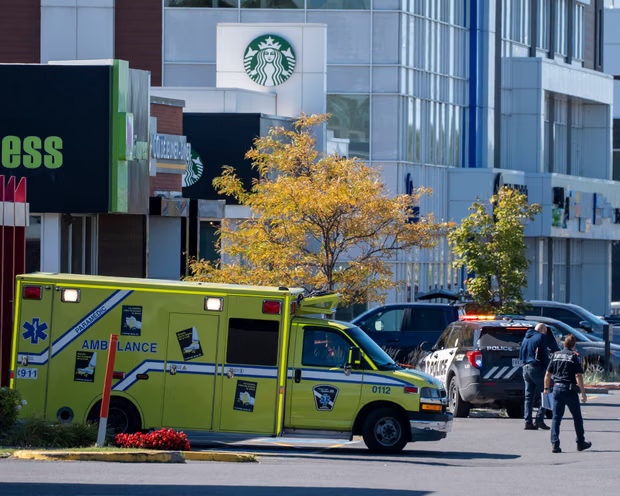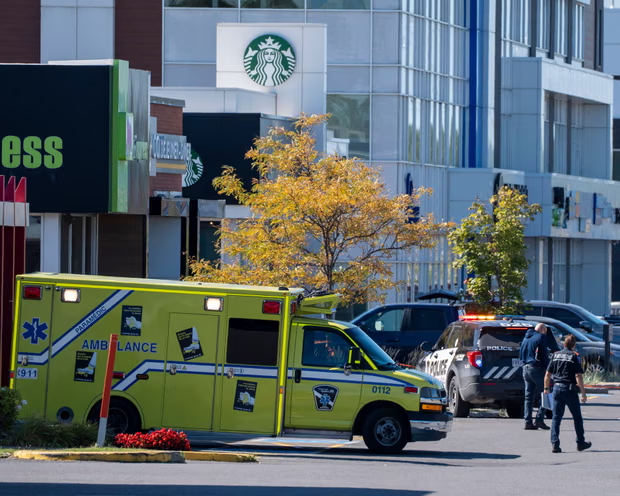The shocking daylight assassination of a well-known Quebec gang leader at a suburban Starbucks near Montreal this week may signal a shift toward a more chaotic and audacious phase in organized crime, experts suggest.
Authorities say the killing comes in the wake of significant arrests earlier this year, which targeted senior figures in Montreal’s mafia. Those arrests may have created a power vacuum, providing an opportunity for younger, less-established gangs to expand their influence.
Police reported being called to a Starbucks in Laval, a Montreal suburb, around 10:30 a.m. on Wednesday following reports of a shooting inside the café. One man was killed and two others were injured. While authorities have not officially released the victim’s identity, multiple Canadian outlets have identified him as 40-year-old Charalambos Theologou, also known as “Bobby the Greek,” a convicted drug trafficker and leader of the Chomedey Greeks gang.

Quebec’s public security minister, Ian Lafrenière, indicated that the killing is “linked to organized crime.” Laval police chief Pierre Brochet confirmed the victim’s criminal connections but refrained from providing details about the ongoing investigation. Surveillance footage broadcast by Radio-Canada shows two men entering and quickly leaving the Starbucks shortly before the shooting.
Theologou’s criminal record dates back to 2005, when he was arrested in Montreal alongside six others in a drug trafficking probe. He pled guilty and served a two-year prison sentence. In 2009, he was arrested again for similar charges and received a five-year sentence.
Valentin Pereda, assistant professor of criminology at the University of Montreal, noted that Montreal’s organized crime traditionally maintained strict hierarchies and avoided public violence to protect business interests. A daylight killing at a public coffee shop suggests that such restraints may no longer exist, either because perpetrators were indifferent to public exposure or because the criminal structure has weakened.
Pereda highlighted that this instability follows the June arrest of alleged mafia leader Leonardo Rizzuto, son of the late Vito Rizzuto, a notorious Canadian mafia boss. Leonardo Rizzuto was charged with first-degree murder after a three-year investigation. Vito Rizzuto, once described by the Globe and Mail as Canada’s top mafia boss, had served a U.S. prison sentence for conspiracy and racketeering before his death in 2013.
The removal of the Rizzuto leadership, Pereda explained, has created a gap that smaller, less organized street gangs are now trying to exploit. Wednesday’s Starbucks shooting is a stark illustration of this unstable environment, suggesting a fragmented underworld with multiple groups vying for power and influence.



